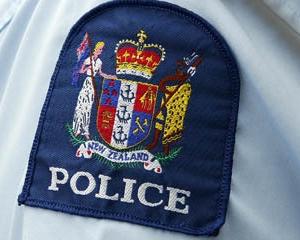
Council chief executive Dr Sue Bidrose told councillors a study of council assets and the return on investment they provided to ratepayers had begun late last year.
The work would be carried out this year and scrutinise the council's companies, property holdings, including about $90 million of investment properties, and the Waipori Fund, she confirmed.
While the study would not consider the budget implications of any asset sales, councillors would be in a position to do so once they had the report, she said.
Options to be considered could include the full or partial sale of some assets.
''The work's being done to allow you to make that call,'' she said.
Her comments came on the first day of the council's deliberations on a pre-draft long-term plan which projected a decade of tight budgets and a freeze on new investment in the city.
The plan prompted some councillors to call for asset sales to be put on the table, including Cr Lee Vandervis, who named Delta and Aurora as two council-owned companies ripe for sale.
Selling assets would help accelerate debt repayments and avoid the need for another decade of ''horrific'' austerity, he said.
The National-led Government had recognised the value of asset sales, ''and I think we should seriously look at the same'', he said.
Some other councillors supported consideration of asset sales, including Cr Neville Peat, who said the spotlight should be on non-strategic assets within the council's property portfolio.
''That might be the headroom we're looking for. It might not,'' he said.
Cr Hilary Calvert asked for a legal opinion on whether the council could sell its $45 million endowment property holdings - about half its wider investment property portfolio - which Dr Bidrose said would be sought.
Cr Andrew Whiley also supported consideration of asset sales, including the council's companies, the Waipori Fund and the Wall Street mall.
Their views came as the pre-draft long-term plan projected rates would increase by 3.7% in 2015-16 - above the council's self-imposed 3% limit - and break the limit again in six of the following nine years.
Service levels would be maintained while spending on projects across the city was frozen for the next decade.
That was partly due to an $8.2 million drop in annual council revenue, including a $4.5 million drop in Dunedin City Holdings Ltd dividends to the council, which were used to offset rates.
The cut would allow the council-owned companies to reinvest in their businesses, but exactly when dividends would resume remained unclear.
The pre-draft long-term plan did not budget for any resumption over the next decade, which was a ''conservative'' approach, council group chief financial officer Grant McKenzie said.
Dividends were expected to be resumed later in the 10-year period, but at a reduced level of about $2 million a year, rather than at pre-existing levels, Mr McKenzie warned.
Cr Richard Thomson said if dividends did not begin to return later in the 10-year period, the council should ask ''whether our investments are in the right place''.
In the meantime, he asked council staff to model ''alternative budgets'' that included changes to debt repayments and increasing DCHL dividends from the second half of the 10-year period.
That could include slowing the repayment of $30 million in stadium-related debt set to be transferred to the council's books, which was at present to be repaid faster than other core council debt, he said.
The changes could help smooth future rates increases, closer to 3%, while sticking to the council's debt reduction targets and creating modest budget ''headroom'' for future investment in the city, he said.
''I'm not comfortable with the notion that we should be trying to be so heroic that we can do nothing for the next 15 years,'' he said.
Earlier, Mayor Dave Cull asked council staff for more information about the likelihood of a resumption in DCHL dividends during the 10-year period.
That could see the budget tweaked to include dividends from 2017-18, increasing by $1 million a year until previous levels were reached.
That would help free space in the council budget for some necessary extra spending almost immediately, from 2015-16, he suggested.
Mr Cull said council staff had worked hard to find savings, control rates rises and deliver a business-as-usual budget, but that did not include new spending on projects such as a new Mosgiel pool.
''If the council and the community want new things ... then it's an extra cost on top of the normal expected rates rise. It's not included in it,'' he said.
Finding the balance between constraining costs and continuing to invest in the city was something councillors would need to carefully consider as part of the long-term plan process, he said.
But questions should also be asked if the council's companies did not produce dividends within the long-term plan's 10-year period, he believed.
''That's what we have the investments for.''












